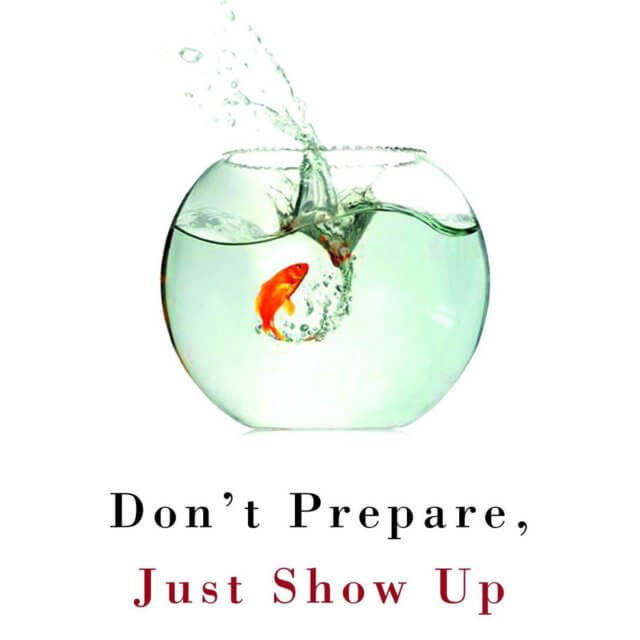I’m working on Seeing the Gifts.
Ooh, this is a hard one for me, but it’s so important for anyone working in the meeting profession.
“I can look at a person or event from three vantage points.
- To see what’s wrong with it (the critical method commonly used in higher education). Using this lens the self looms large.
- To see it objectively (the scientific method). Using this lens both the self as well as others are meant to disappear.
- To see the gift in it (the improviser’s method). With this lens others loom large.”
—Patricia Ryan Madson, “wake up to the gifts” improv wisdom
Three vantage points, not one
Trained to be an academic for the first twenty-five years of my life, I default to Patricia’s first vantage point, the critical method. What’s wrong with it? I’m consoled slightly by Patricia’s observation that this is her default vantage point too.
It’s tricky to move to the second “scientific” vantage point, where “both the self as well as others are meant to disappear.” We are trained to do this when working with others, to replace our ego viewpoint with the perspective of a team or a common goal. From this vantage point, our focus is usually on a specific outcome or the process needed to obtain it. As Patricia says, the people involved are “meant to disappear”. That’s great for making dispassionate decisions — but my soul is missing.
Finally, the third vantage point, the one that is difficult for me to maintain. When we live from an awareness of the gifts in our lives we become open to others and possibilities in ways that would never otherwise occur. Patricia describes a week in Japan immersed in an intensive process called Naikan, a form of gratitude meditation on one’s debt to the world. In Naikan you focus through a structured process on the answers to three questions: What have I received from (person x)? What have I given to (person x)? , and What troubles and difficulties have I caused to (person x)?
When I practice gratitude meditation I quickly become aware that I receive far more from the world than I give. Right now I’m walking on my treadmill desk and typing on my laptop. Many strangers designed my treadmill, built it, and shipped it to my home. Hundreds of thousands of people, whom I will never know, made the gift of the use of my laptop possible. Being aware of these realities about every aspect of my life imbues gratitude that changes my moment-to-moment attitude toward the world.
Cultivating a different attitude
Cultivating this attitude helps me when things don’t go according to plan. Which has happened at every event I’ve ever attended/designed/facilitated!
When (these have all happened to me):
- My mike goes on the fritz with no production crew around;
- A session I’ve facilitated numerous times goes way off script; or
- An angry participant jumps up and walks towards me with clenched fists.
I could:
- vent my anger and helplessness;
- feel out of control; or
- feel scared.
Or I could:
- ask for help and discover there’s a friendly A/V pro in the audience who can fix my mike;
- slowly realize that what’s happening at the roundtable is actually an improvement on everything I’ve done before; or
- notice that the anger the participant is feeling is all about him, not me, and I can handle the situation well and learn something important about myself.
Patricia advises us to practice this approach to life by looking for specific examples of help and support: “They are everywhere.” Reinforce this habit with thanks:
“Look around: give thanks, give credit, give encouragement, and never stop; become liberal with your praise and acknowledgment of others, including strangers and not excluding family members.”
When I wake up to seeing the gifts, my glass becomes (at least) half full, and — even in the face of adversity and obstacles — it becomes easier for me to live a creative, service-filled, and joyful life. Yes, it’s hard for me to maintain, but it’s worth the practice and effort.
Image: detail from the cover of Improv Wisdom, 2005 edition
